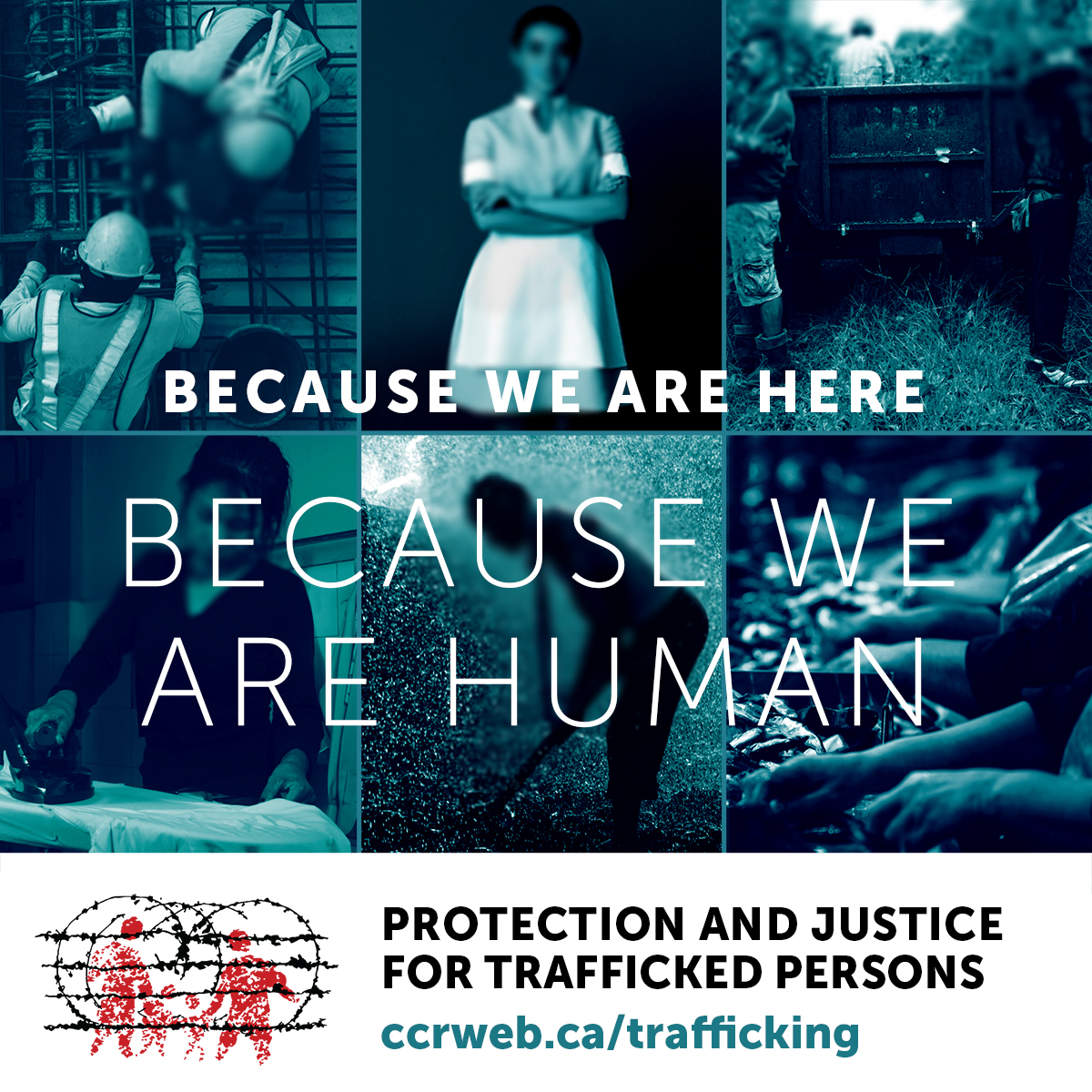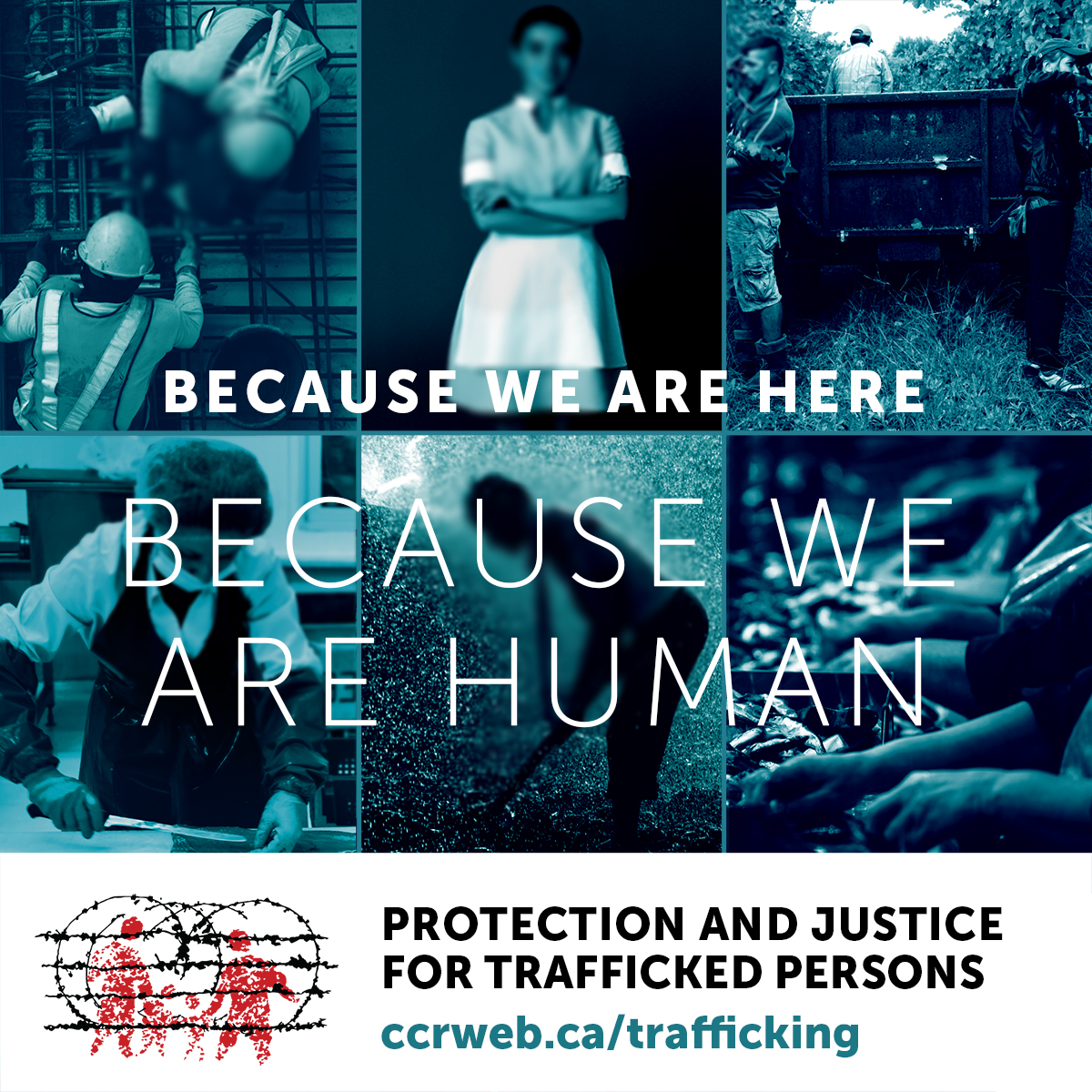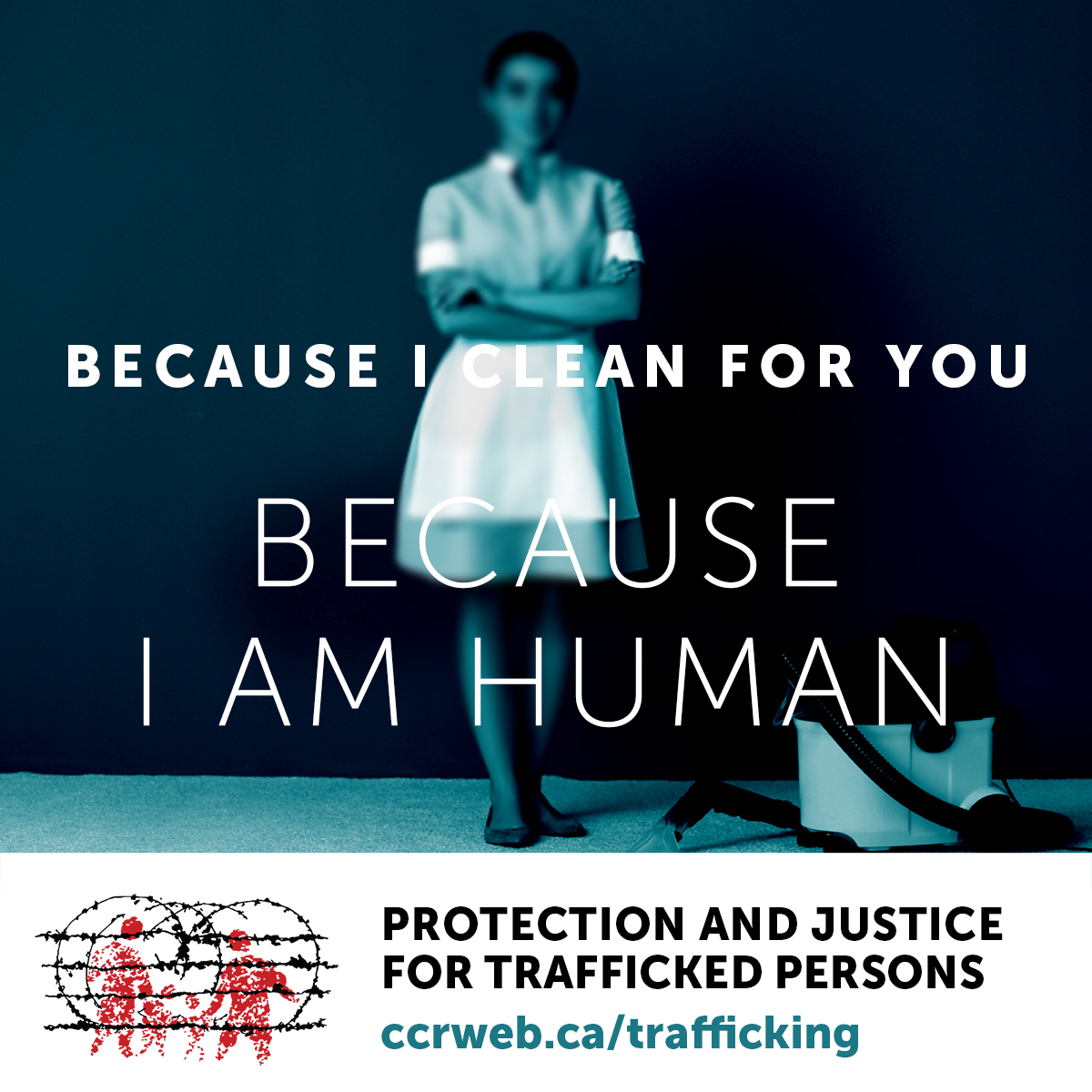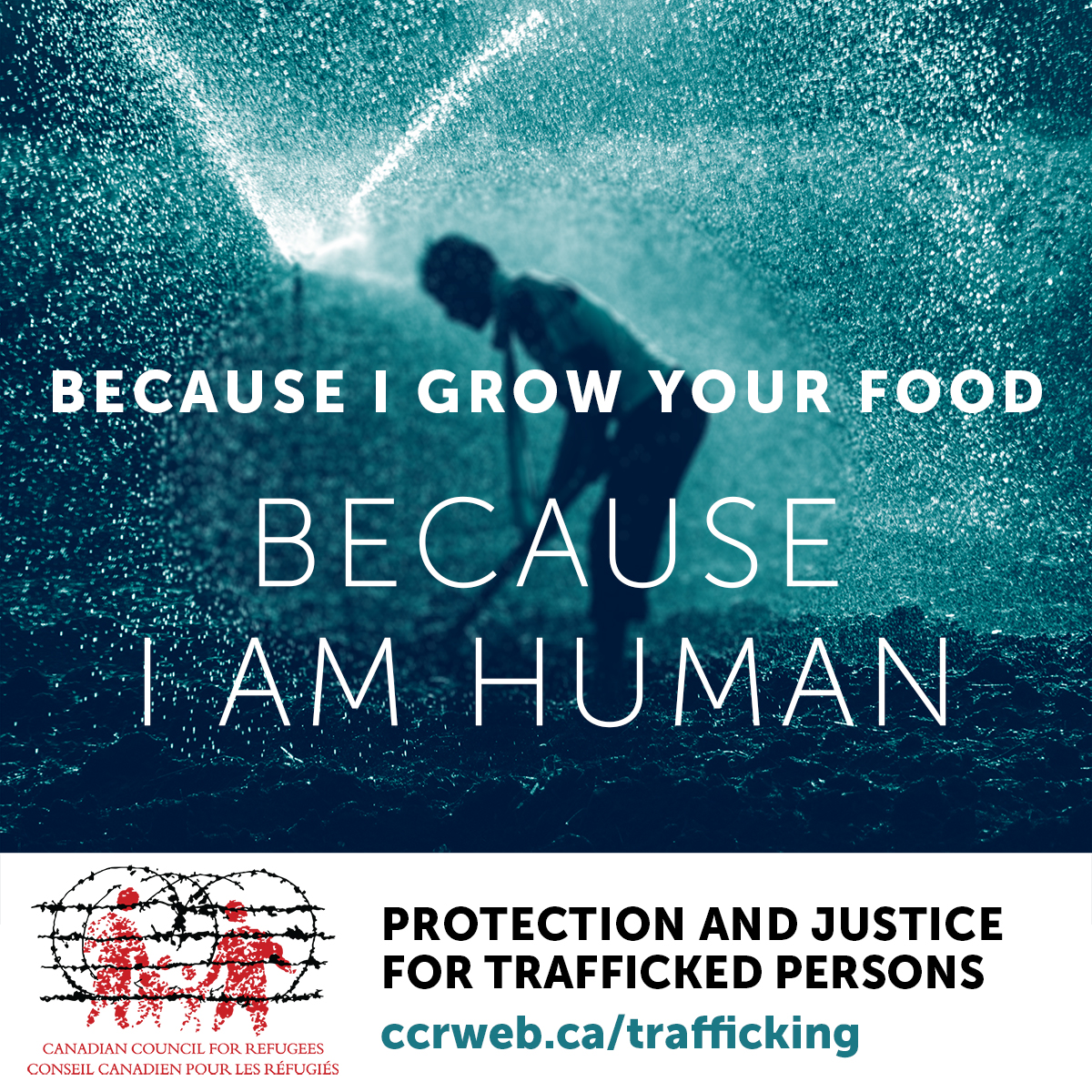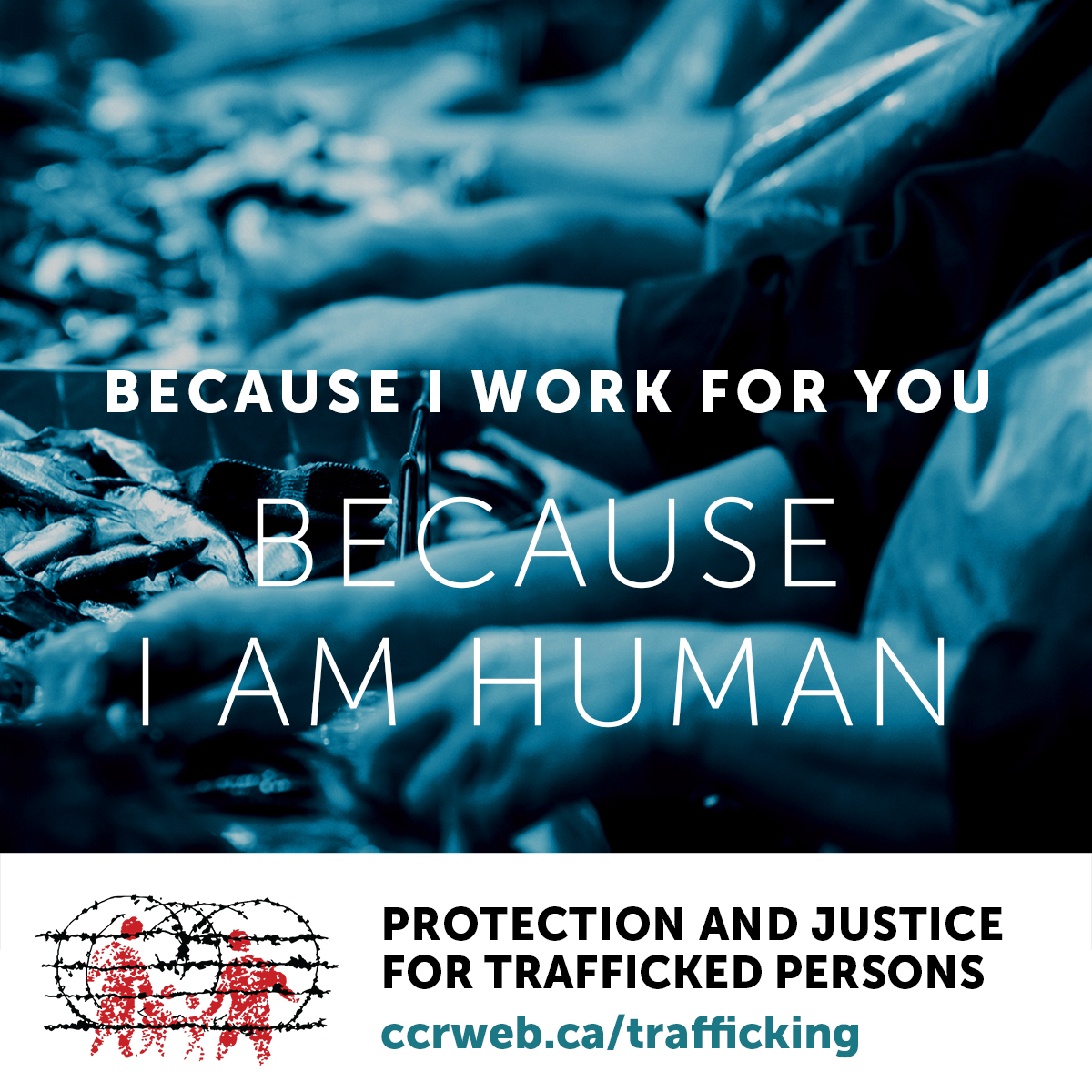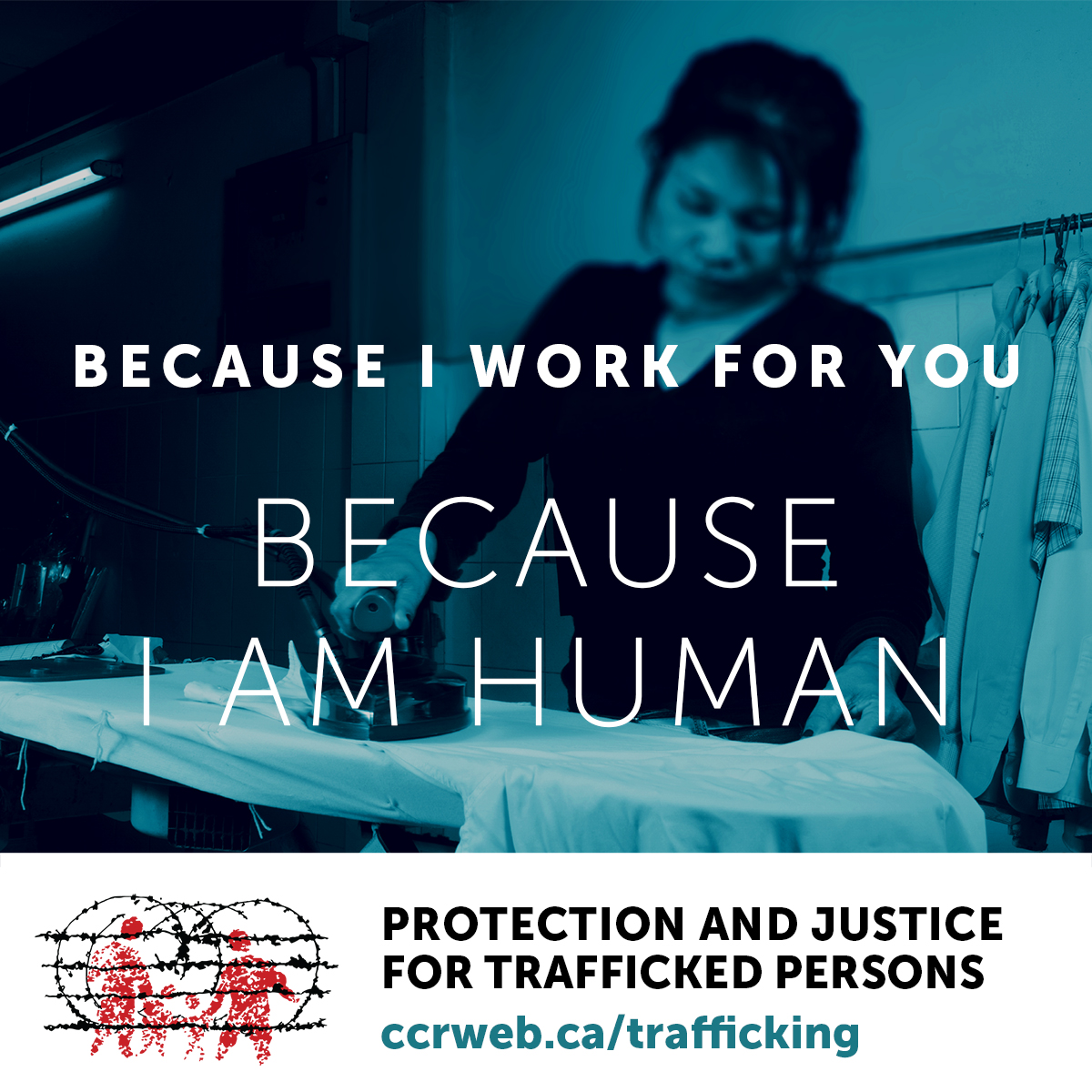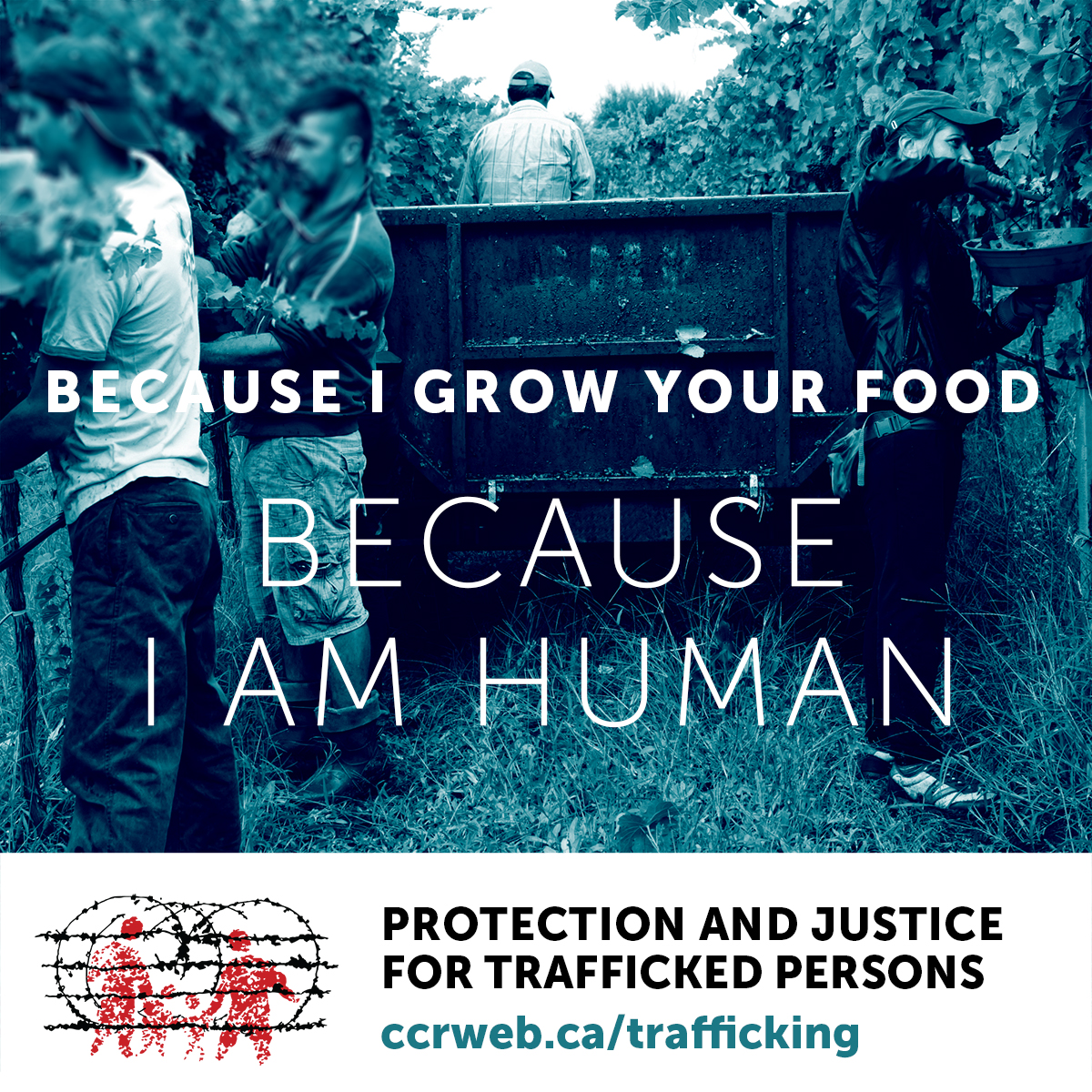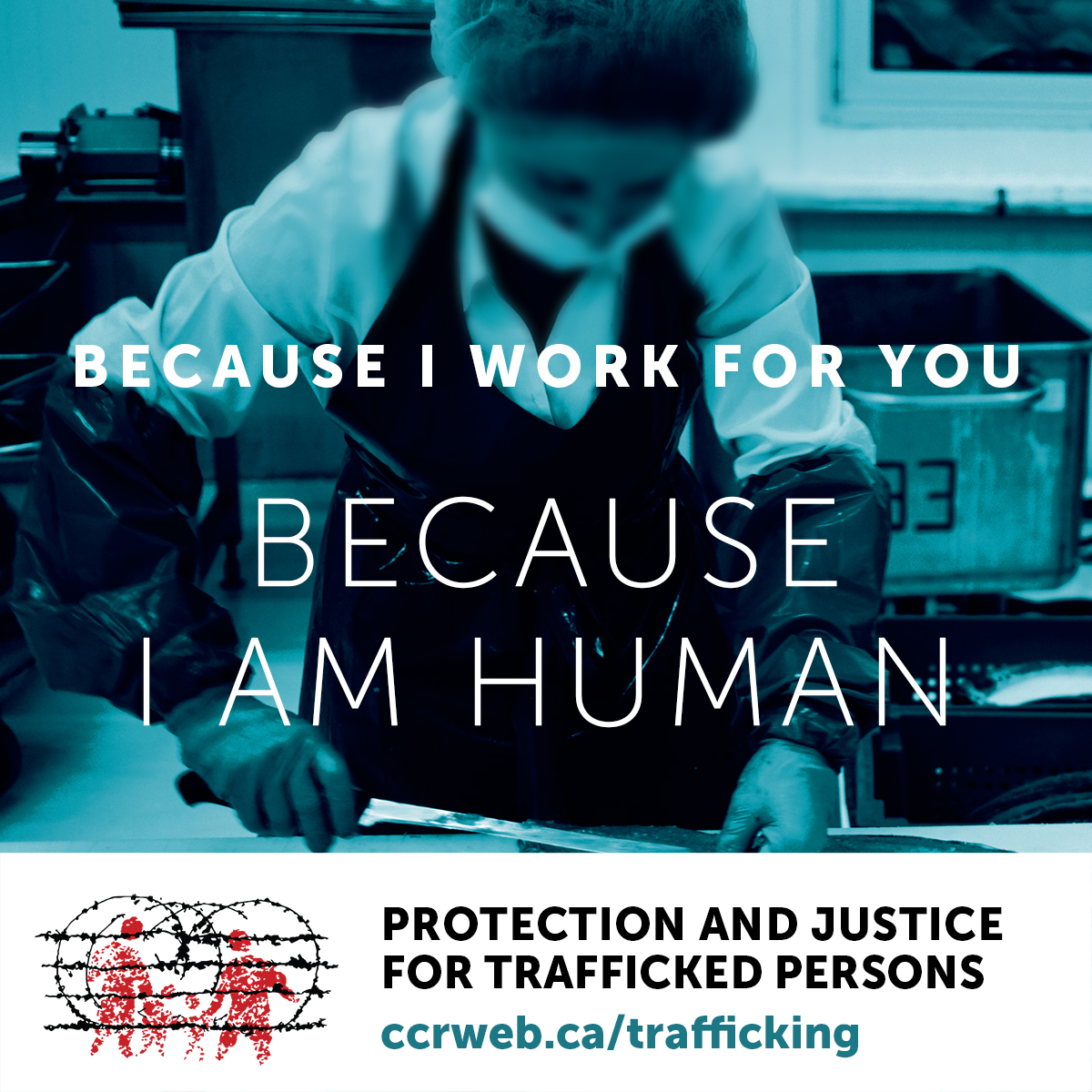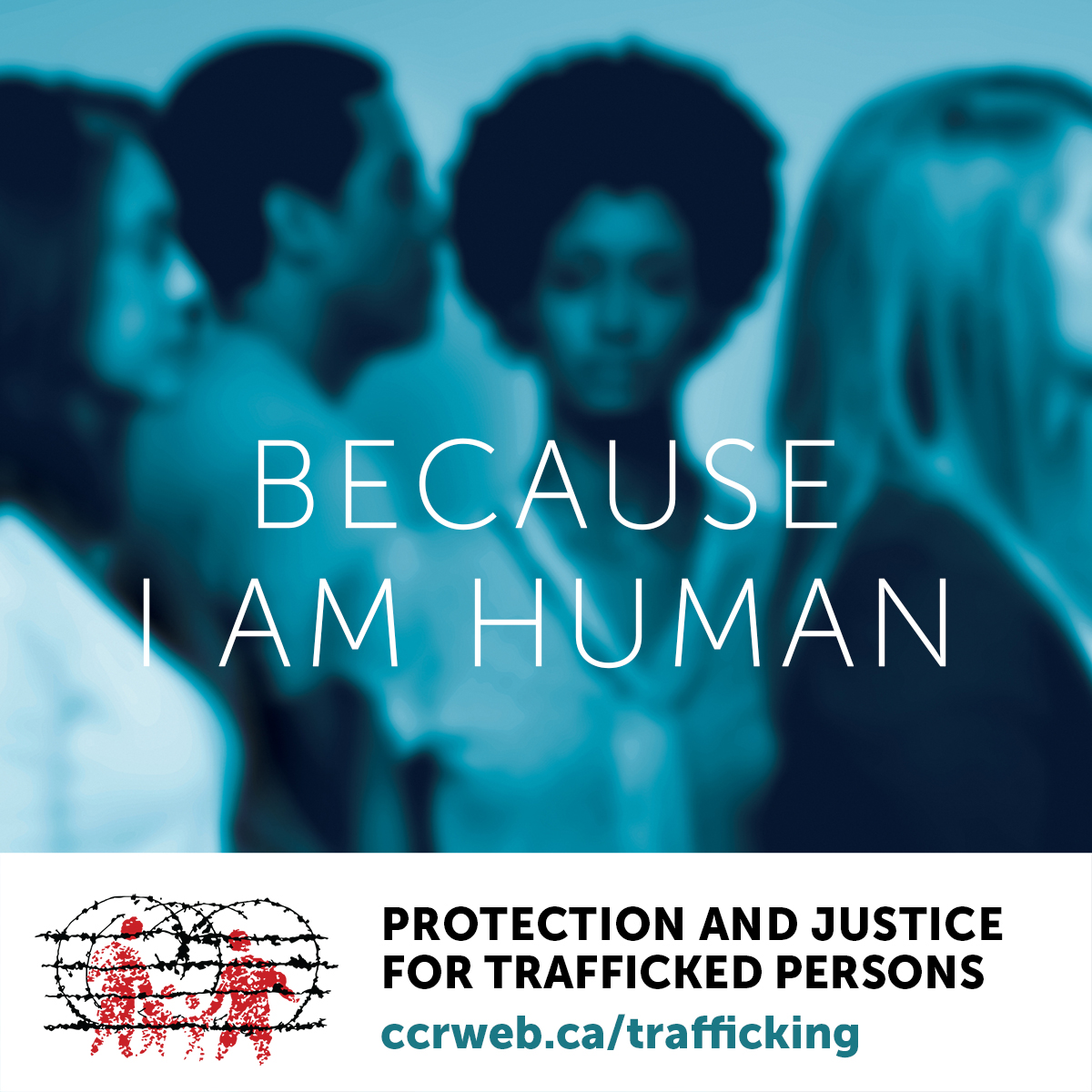Forced labour happens in Canada: precarious migrants call for justice and protection
In this public education event, front-line workers, human rights advocates and migrant workers with lived experience explained what human trafficking looks like in Canada and how to take action as existing remedies fall short of providing protection or justice. Trafficked persons who fail to get Temporary Resident Permit for Victims of Human Trafficking (VTIP-TRP) are left in limbo, without protection. The current pandemic crisis only amplifying their precarity.
Resource persons were: Shelley Gilbert, Legal Assistance of Windsor, Natalie Drolet, Migrant Workers Centre (Vancouver), "Maria", Migrant Worker, Luis Alberto Mata, FCJ Refugee Centre (Toronto), Rico Angustia, Migrant Worker, and Sue Wilson, Sisters of St. Joseph Canada (Toronto).
Moderator was: Leah Woolner, Mouvement contre le viol et l’inceste (Montreal)
Webinar resources:
Click here to access the backgrounder.
Click here to access the resource persons' bios.
Click here to access the WASAGA/BARRIE Case of Mexican Migrant Workers in Canada.
Click here to access the research report on Trafficked Persons, Avoiding Collateral Harm.
Click here to access the webinar presentation.
Click here for the webinar recording.



